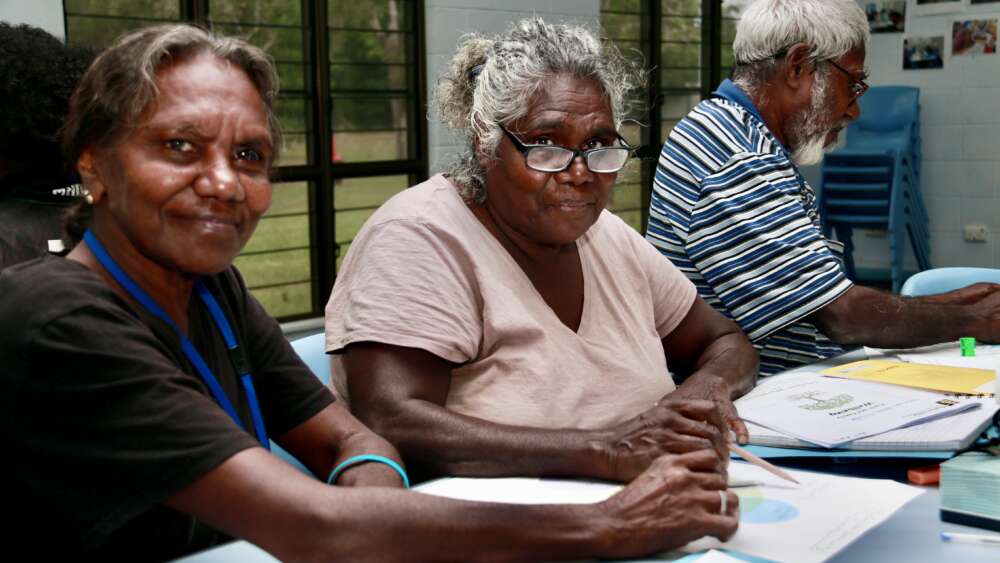Strengthening Aboriginal families from the roots
At the end of an intense week studying deep and powerful questions of family and personal dysfunction, a group of Aboriginal people from remote communities in the Top End needed a circuit breaker.
So their teachers, Karen and Steven Fletcher, organised an excursion to East Point Reserve – a special place for the people of Darwin and one of the most popular recreation areas for both locals and visitors.
There, the 20 participants in Nungalinya College’s pioneering Faith and Wellbeing course sat on benches over the stunning mangrove forest and contemplated the dramatic root system that kept the trees nourished and strong.
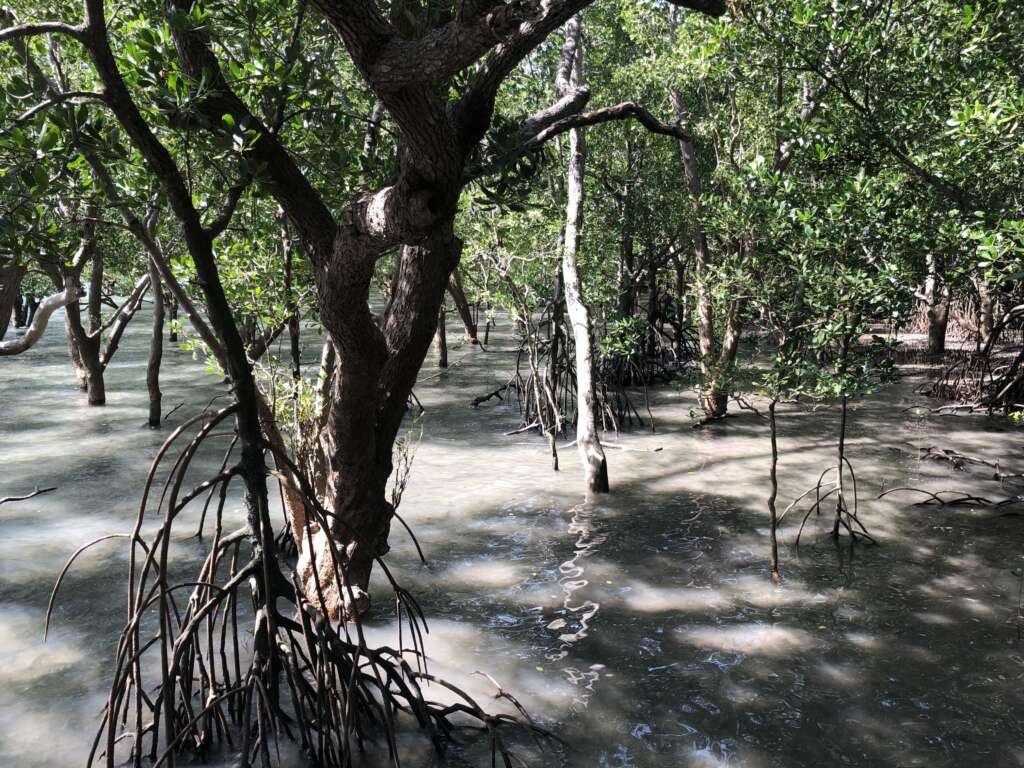
The mangrove trees at Darwin’s East Point remind us of the need to nourish the roots of our personal and family wellbeing.
“Across the four weeks of the course, we did some things to break up the intensity of talking about deep and powerful things like trauma, grief, loss, violence, and wellbeing,” says Karen, who wrote the course with her husband Steve.
“We had the theme of a mangrove tree, and that was a metaphor for our own wellbeing and the roots that need to be fed and strong, for our livelihood to be healthy.
“So at the end of the first week, we went on an excursion to the mangrove boardwalk at East Point, and it was just lovely to get out of the classroom, out into that space, and just enjoy the space.
“Everyone was excited to be in a really lovely place, but I think when we sat there and started sharing, they could see these real roots. And that was exactly what we’d been talking about.”
There are many initiatives to help break the cycle of domestic violence and family dysfunction in Aboriginal communities, but Darwin’s Nungalinya College has teamed up with Tearfund Australia to tackle the problem on a foundation of Christian faith, with the hope of real results in the community.
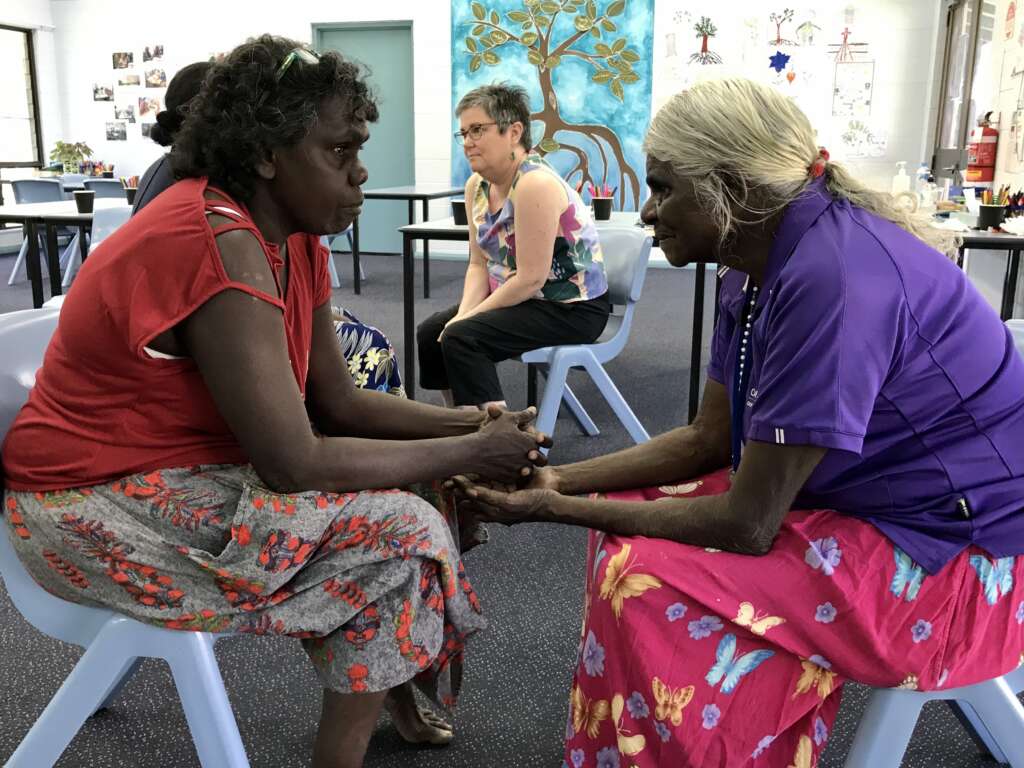
Evelyn and Angela sharing in class with Karen in the background
Church leaders in three of the biggest Aboriginal communities in the Top End – Ngukurr, Maningrida and Wadeye – chose key people to take part in the new course that seeks to be a springboard to long-term ministry to address some of the deep problems of Aboriginal communities.
“For instance, in Ngukurr, it’s a really strong core group of church leaders, and they chose people who may or may not have been students here, but the right people to be moving on in this area,” explains Ben van Gelderen, the college principal.
“We also wanted to bring in couples – husbands and wives – so that we can more effectively tackle some of the issues particularly around family violence and develop people as role models.”
Karen and Steve Fletcher, who have been teachers at Nungalinya for five years, asked Ben if they could share the teaching of the course so as to provide a role model for how couples in a Christian marriage relate to each other.
Speaking to Eternity, Karen said a level of trust was built up over the four-week face-to-face teaching block that allowed the students to share very difficult and traumatic experiences.
The third week included a three-day Alternatives-to-Violence program, with lots of activities which the students found very engaging.
“Then, on the Friday, we told them that we had a surprise after lunch, and they were a bit dubious. But they came in and we’d turned the classroom into a cafe, the Wellbeing Cafe. So they sat down and we served them tea and coffee in fine China teacups and we had little cakes. We had a big projector on the wall which just rolled through a whole lot of beautiful scenery around the world – three hours of epic scenery sort of drone shots.”
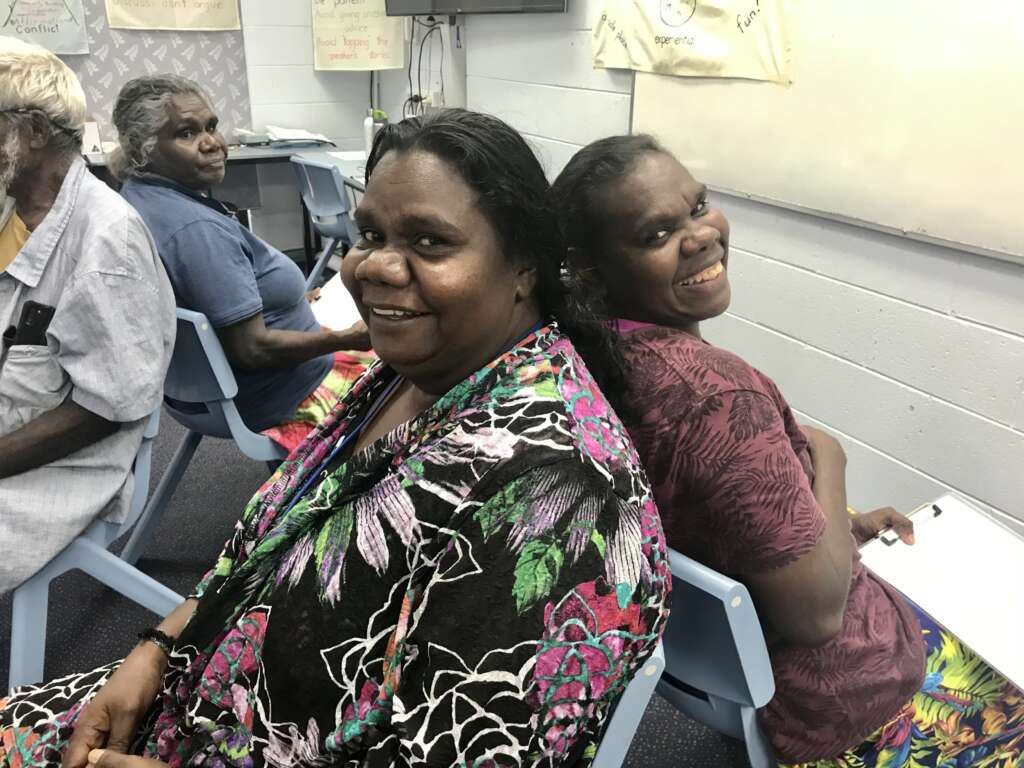
Marcianne and Jacinda in class with Rosemary and George in the background
Karen was amused that the first thing the students did was to ring their families back home and show what was happening on video.
“It was a time of sharing together and resting and just reflecting on God’s creation and talking about where their favourite places are.”
Steve adds: “Because we’re diving into deep things, we didn’t want to leave people at the end of the day in a bad place. So we really tried to leave people at the end with a positive note.”
Some of the ways they did that were with quiet times of meditation on Scripture, a song or a prayer.
“We also used a resource called the bear cards, which is an emotional intelligence thing that has drawings of bears exhibiting different emotions, and then use those while sitting on the floor groups in lots of different ways,” says Karen.
“They just embraced it. It enabled us to talk through all the things that you want to touch on when you’re talking about how we manage our emotions. ‘Which bear would you take along on your journey? Which bear are you today and how are you feeling now?’ And to just be really conscious of that emotional toll, but also raise awareness of how important emotional intelligence is.”
This week Karen and Steve are in Ngukurr for a week, to complete the course and to hold the graduation ceremony. They will then spend a week each in Maningrida and Wadeye.
“We had a false start last week. We went to Maningrida and came back all on the same day because of the snap lockdown, but the plan is we go and spend a week in community with our students, just be with them in this space, but also working and seeing how they go, checking in with what they were planning to do or be, and thoughts and dreams of what might be ahead and just supporting them,” she says.
“And then looking ahead to next year and thinking about what might happen as we move forward, you know, are they interested in us moving forward with them in their community?”
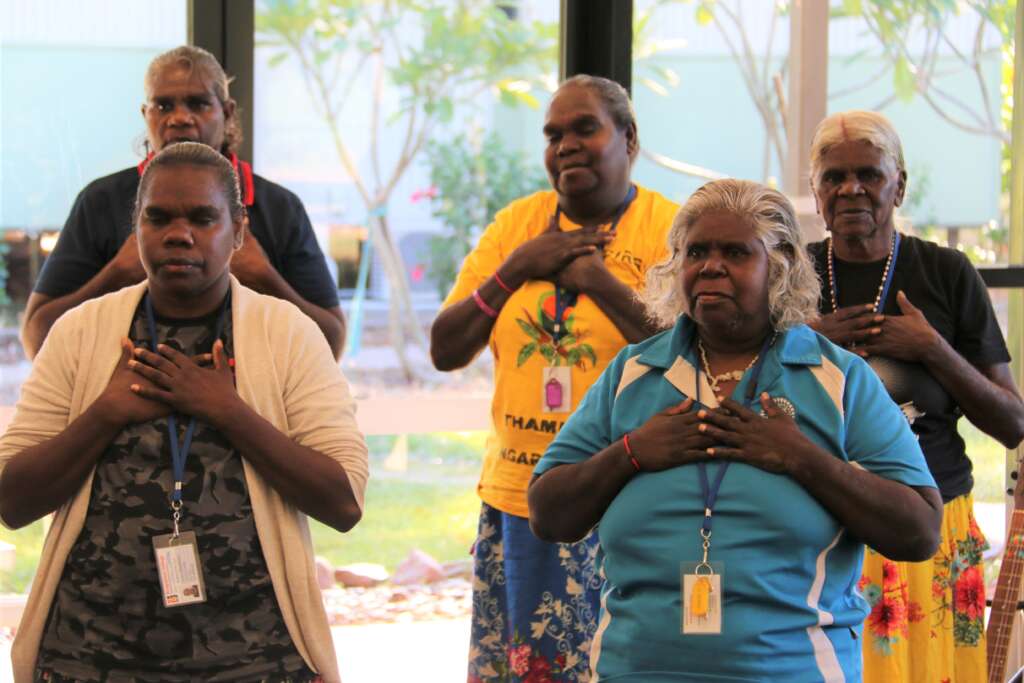
Marcianne, Jacinda, Christina, Lorraine and Angela perform an action dance in chapel
Ben explains that he doesn’t want the Certificate II VET course to be just a course but to evolve into ongoing ministry in the communities.
“We’re really working hard to work out or how do we make sure this isn’t just a course? How does this really impact lives at the community level? So we’re trying to talk to Tearfund and to other organisations already working in communities in this overall family-wellbeing-trauma-violence space about how do we integrate with them or connect with them or build on what they’re doing?
“Is it that you want to be able to offer more training to different people? Is it perhaps that there might be resources, where we create some content that they can then take, say video content they can use and which will then be a springboard for them to do a workshop?”
While it’s too early to measure any outcomes, Karen said there was an overwhelmingly positive response to the course.
“We had some really difficult and hard stories, but we also saw and heard stories of resilience and dependence on God and trusting that he was in this, which I just find incredibly challenging myself to think we’ve got in this space of just extraordinary difficulty but we can walk with God in this,” she says.
Adds Ben: “One of the quotes that students came back in the debrief at the end was ‘this course is about real life.’”
Email This Story
Why not send this to a friend?
